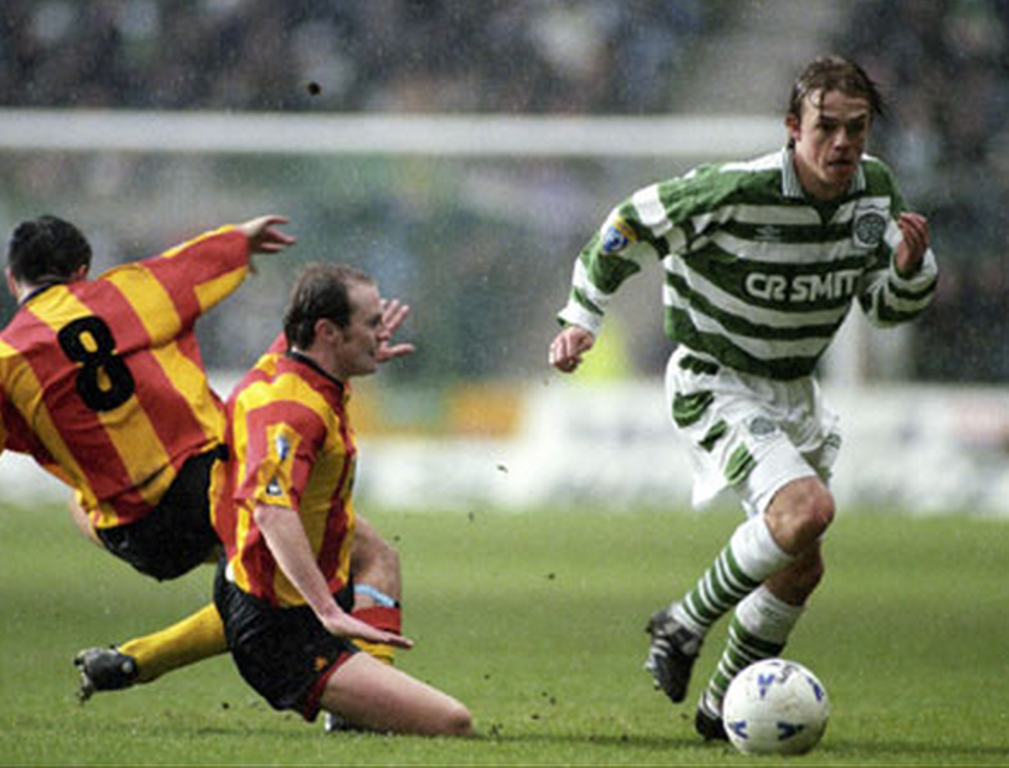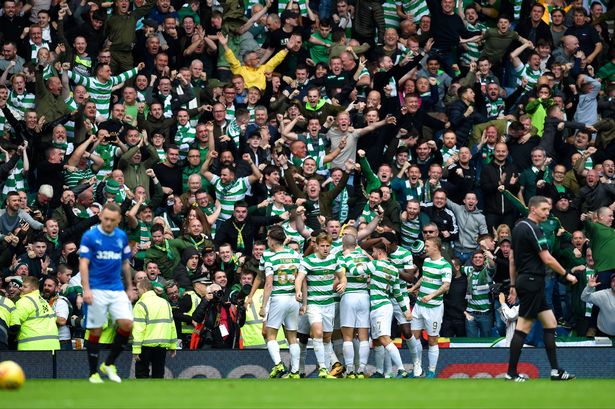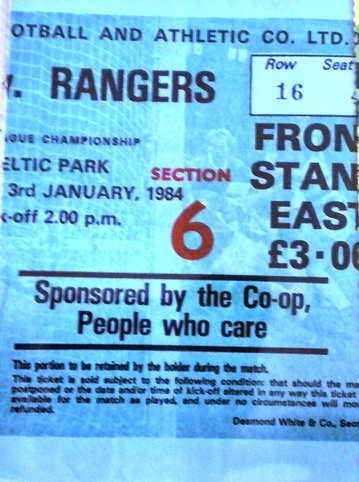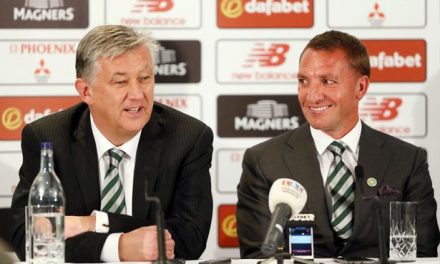In March 1994, Celtic were in a particularly poor state both on and off the field of play. The team could best be described as mediocre although it was still a surprise when manager, Lou Macari, decided to give 19 years old reserve striker, Simon Donnelly, a run in the first team.
Young Donnelly was a breath of fresh air and looked Celtic’s best youth prospect for many years. After scoring twice in a 2-1 win over Raith Rovers, Macari was carried away enough to make comparisons between Simon and a young Kenny Dalglish, something which was to do him no favours in his later career.
In April 1994, Donnelly was immense as an under strength Celtic side fought a rearguard action and emerged with a credible 1-1 draw against Rangers on the day when David Murray banned Celtic supporters from Ibrox. A few weeks later he scored two excellent goals against Manchester United at Old Trafford, in the Mark Hughes testimonial match, to enhance his already growing reputation.
Macari was sensationally sacked shortly afterwards and replaced by Tommy Burns. Simon played a part in Tommy’s early team selections but the new manager tended to concentrate more on his experienced strikers such as Charlie Nicholas, Willie Falconer and Andy Walker. The season was a mixed bag with Celtic atoning for their shock League Cup final defeat to Raith Rovers by beating Airdrie in the Scottish Cup final at Hampden in May 1995. On that day Simon won his first senior medal, chosen in preference to the more accustomed duo of Walker and Nicholas.
Burns converted Simon to a midfield player for season 1995-96. When right-back Jackie McNamara arrived from Dunfermline in October 1995, both players not only struck up a great partnership on Celtic’s right flank but created a bond that stayed strong into their managerial careers in the 21st century. McNamara and Donnelly combined superbly and one delightful goal at Easter Road in December 1995 showed them at their best when Donnelly’s fine pass was spectacularly executed by McNamara.
Donnelly took a low profile around this time as Celtic brought expensive foreign players in to beef up their challenge to Rangers. Van Hooydonk, Thom, Cadete and Di Canio all arrived to the joy of Celtic fans but Simon continued to hold down a regular place despite the new increase in competition and quality at Parkhead.
Sadly for Burns, he was not able to dislodge Rangers from their vantage point and Wim Jansen arrived as new Celtic manager in the summer of 1997. The astute Jansen observed early that McNamara was better employed in midfield and Donnelly in attack, so all was changed again. Those positional moves paid off handsomely with Celtic winning both the League and the League Cup in a memorable season. Simon was now seen as one of the more experienced players and he developed a fine understanding with Henrik Larsson in Celtic’s attack over the course of that campaign.
In May 1998 Celtic travelled to East End Park to face Dunfermline knowing that a win would give them their first league title in ten long years. All looked well when Donnelly gave Celtic the lead until Craig Falconbridge equalised late in the game, thus denying Simon of his moment of glory as Celtic’s league title match winner.
One week later Celtic beat Saint Johnstone 2-0 on an unforgettable sunny day at Celtic Park. This time the goal heroes were Larsson and Harald Brattbakk and afterwards the celebrations were joyous. Simon Donnelly deserves great credit for this success with an impressive tally of 16 goals over the course of the season. His form was such that Craig Brown named him in the Scotland squad for the France World Cup in the summer of 1998.
Celtic’s managerial merry go round continued yet again when Jansen left to be replaced by Jozef Venglos. It took Celtic a long time to get going that season as more new arrivals came to the club in the shape of Mark Viduka, Lubo Moravcik and Johan Mjallby. The season finished trophy-less for Celtic but Simon had the satisfaction of playing a lead role in Celtic’s 5-1 thrashing of Rangers at Celtic Park in November.
Donnelly’s contract was up in the summer of 1999 and both he and fellow Celtic team mate, Phil O’Donnell, took the opportunity of departing Glasgow for Sheffield Wednesday. At that time the Yorkshire club were a Premiership side but the move did not work out as both men were cursed by injuries and relegation.
Simon Donnelly was a fine performer for Celtic. He gave his all over a five year period and he left the club in a considerably better position in 1999 than it was when he made his debut in those far off dark days of 1994.





